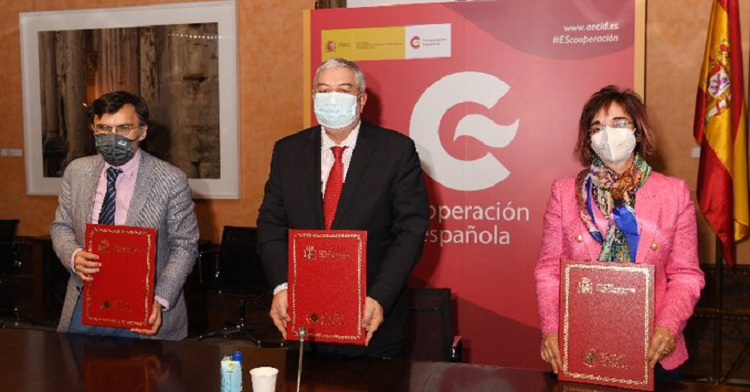The Diplomat
The Spanish Agency for International Development Cooperation (AECID), the ONCE Social Group and the Spanish Committee of Representatives of Persons with Disabilities (CERMI) have signed a collaboration agreement in Madrid to incorporate the concept of “diplomacy for inclusion” in all their actions.
The objective of the agreement, according to AECID, is to “define the general guidelines for the planning, identification, design, implementation, monitoring and evaluation of programs of shared interest and joint interventions to promote and protect the human rights of persons with disabilities in the world, especially in the most disadvantaged groups.”
The agreement, signed last Monday by Magdy Martínez Solimán, director of AECID; Alberto Durán, first vice president of the ONCE Social Group; and Pilar Villarino, executive director of CERMI, commits to “guarantee equal opportunities and reduce inequality by promoting social, economic and political inclusion, putting an end to all forms of discrimination against women and girls with disabilities and working to eliminate violence, harmful practices and the multiple discriminations they face.”
The parties also reached an agreement in principle to coordinate efforts within the Global Action on Disability (GLAD) Network, an “organization with a strong Anglo-Saxon character until now and which they hope will look more towards Latin America”. It will also seek to “coordinate possible interventions with the EU and exchange information of mutual interest through the antennae of both institutions in Brussels”.
In these lines of action, the ONCE Social Group will make contributions so that the foreign policy strategy has elements to raise awareness in certain matters related to disability, such as accessibility, employment or professional practices. It will also develop the necessary technical assistance for those countries that wish to carry out legal reforms in favor of the protection of persons with disabilities.
AECID and ONCE -which have been collaborating since 1998- expressed their interest in extending their collaboration to the cultural field as well, becoming a reference in training programs in the field of disability, and expressed their willingness to continue with the development of their joint projects in the Latin American region and to study the possibility of extending this cooperation to Sub-Saharan Africa and the Mediterranean.







